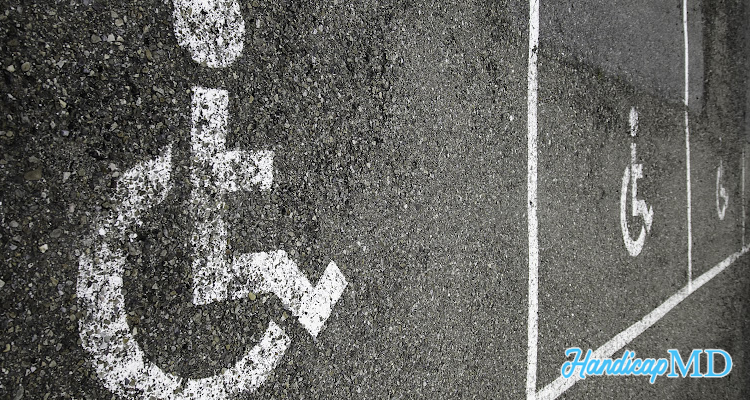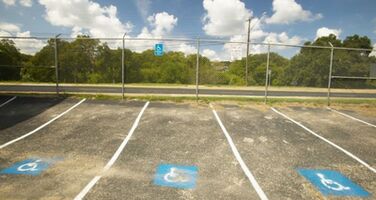
Myths vs. Facts: Debunking Common Misconceptions about Handicap Placards in Rhode Island
Introduction
Disability passes play a crucial role in ensuring accessibility and convenience for individuals with disabilities in Rhode Island. However, there are many misconceptions and myths surrounding these essential tools. In this informative article, we'll debunk these common misunderstandings and provide expert insights to help you better understand the world of handicap placards in Rhode Island. Let's embark on a journey to separate myths from facts and empower you with accurate knowledge.
The Importance of Handicap Placards
Disability placards serve as lifelines for individuals with disabilities. They grant parking privileges that make daily life more manageable for those who face mobility challenges. The benefits of handicap permits include:
Convenient Parking: One of the primary advantages of having a handicap permit is the ability to park closer to your destination, minimizing the need to traverse long distances, which can be physically taxing for individuals with disabilities.
Accessibility: Disability passes ensure that parking spaces are available near entrances, ramps, and other accessible features, making it easier for individuals with disabilities to access public places.
Reduced Stress: With a permit, you can avoid the frustration of searching for a suitable parking spot, making errands and appointments less stressful.
Independence: Placards enable individuals with disabilities to lead more independent lives, as they don't have to rely on others for assistance when it comes to parking.
Common Myths and Misconceptions
It's time to dispel some of the prevalent myths and misconceptions regarding disability permits:
Myth: Disability Placards Are Easy to Obtain
Some people believe that acquiring a disability pass is a simple and straightforward process. In reality, the process is designed to ensure that only those who genuinely need the benefits receive them.
The Facts: To obtain a Rhode Island handicap placard, individuals must provide medical documentation from a licensed healthcare professional. This documentation verifies the need for the placard, guaranteeing that it goes to those who require it.
Myth: Handicap Placards Are Only for Wheelchair Users
There's a common misconception that permits are exclusively for individuals who use wheelchairs. While they do benefit from these placards, they are not the sole beneficiaries.
The Facts: Disability permits are intended for anyone with a mobility impairment, which may include individuals with heart conditions, respiratory issues, and other disabilities that affect their ability to walk long distances.
Myth: Disability Placards Are a License to Park Anywhere
Some believe that having a disability pass gives them the right to park anywhere, including in restricted areas. This is far from the truth.
The Facts: Handicap passes come with specific regulations and restrictions. While they allow parking in designated accessible disabled parking spots, they do not grant permission to park in fire lanes, no-parking zones, or other restricted areas.
Myth: Handicap Placards Are a Lifetime Privilege
It's a common misconception that once you obtain a permit, you have it for life, regardless of your medical condition.
The Facts: Disability permits are typically issued for a limited duration, often one to five years, depending on the individual's medical condition. After this period, individuals must renew by providing updated medical documentation.
FAQs
Q: How do I apply for a disability permit in RI?
A: To apply for a permit, you need to complete an application form available from the Rhode Island Department of Motor Vehicles (DMV) and provide medical documentation from a licensed healthcare professional confirming your need for it.
Q: What are the eligibility criteria for a handicap pass?
A: Eligibility is based on your medical condition, which must significantly limit your ability to walk. This includes individuals with heart conditions, respiratory issues, and various mobility impairments.
Q: Can I use my Rhode Island-issued disability permit in other states?
A: Yes, most states have reciprocity agreements, allowing you to use your Rhode Island-issued permit in other states. However, it's essential to familiarize yourself with the specific regulations of the state you're visiting.
Q: Are disability passes transferable between individuals?
A: No, these are not transferable. They are issued to a specific individual and cannot be used by anyone else.
Q: Do I need to renew my handicap permit, and how often?
A: Yes, you must renew your handicap permit in RI. The renewal period varies but typically ranges from one to five years, depending on your medical condition.
Q: What are the penalties for misusing a disability pass?
A: Misusing a pass can result in fines, the placard's confiscation, and other legal consequences. It's essential to use it responsibly and in compliance with the law.
Conclusion
Separating myths from facts regarding handicap placards in Rhode Island is essential to ensure that these privileges are used appropriately and responsibly. By understanding the truth behind these common misconceptions, we can foster a more inclusive and accommodating society for individuals with disabilities. Remember, handicap placards are not just about convenience; they represent a commitment to making life more accessible and manageable for everyone.
.png)






